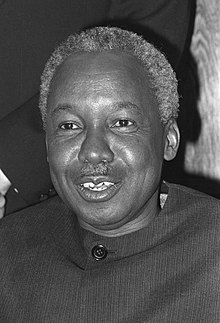Call us: (255) 685709353
The Legacy of Mwalimu Julius Nyerere: A Tale of Leadership and Education at Tabora Boys Secondary School
Introduction
Julius Kambarage Nyerere, affectionately known as “Mwalimu” (Swahili for teacher), is celebrated as the founding father of Tanzania and one of Africa’s most respected leaders. His journey to becoming the architect of Tanzanian independence and a proponent of African unity is deeply intertwined with his educational experiences. One pivotal chapter of his life was at Tabora Boys Secondary School, a place that molded his character, sharpened his intellect, and instilled in him the values of service and leadership.
Early Life: From Butiama to Tabora
Born on April 13, 1922, in Butiama, a small village near Lake Victoria, Nyerere grew up in a modest but intellectually nurturing environment. His father, Burito Nyerere, was a Zanaki chief who valued education and foresaw its transformative potential for his son and his community. After excelling in his early education at Mwisenge Primary School in Musoma, Nyerere topped the 1936 territorial examination, earning a coveted spot at Tabora Boys Government Secondary School in 1937.
Tabora Boys: The “Eton of East Africa”
Tabora Boys Secondary School, founded in 1922, was a prestigious institution in Tanganyika. Often referred to as the “Eton of East Africa,” it was established primarily to educate the sons of chiefs and prominent families. However, it also accepted outstanding students from across the region, and Nyerere’s admission was a testament to his exceptional academic abilities.
Life at Tabora Boys
Academic Achievements
Nyerere was a diligent student who consistently performed well in his studies. The school’s rigorous curriculum included subjects like English, mathematics, history, geography, and religion. These subjects laid the foundation for his future pursuits in higher education and political thought. Nyerere particularly excelled in history and literature, which fueled his passion for storytelling and understanding societal dynamics.
Extracurricular Activities
Apart from academics, Nyerere participated in various extracurricular activities. He was an avid debater, known for his eloquence and ability to argue convincingly on diverse topics. He also participated in sports, particularly soccer, which was a unifying activity at the school. Through these engagements, Nyerere developed teamwork skills and an appreciation for fair play, which later influenced his inclusive leadership style.
Values and Lessons
Tabora Boys was more than just a school; it was a microcosm of the Tanganyika Nyerere envisioned. The institution’s emphasis on integrity, hard work, and service to others resonated with Nyerere. It was here that he first encountered the principles of leadership as service, a philosophy that would underpin his political career.
Beyond Tabora: The Path to Leadership
After completing his education at Tabora Boys in 1942, Nyerere earned a scholarship to Makerere University in Uganda, where he pursued a diploma in education. His time at Makerere further sharpened his intellectual abilities and deepened his commitment to the cause of African liberation.
The Legacy of Tabora Boys Secondary School
Tabora Boys Secondary School has a rich history of producing leaders who have contributed significantly to Tanzania’s development. Beyond Julius Nyerere, the school boasts a list of distinguished alumni, including politicians, academicians, and entrepreneurs. The institution remains a symbol of academic excellence and a testament to the transformative power of education.
Conclusion
The story of Mwalimu Julius Nyerere and his time at Tabora Boys Secondary School is a powerful reminder of how education can shape a nation’s destiny. The lessons he learned there—discipline, service, and the pursuit of knowledge—became the cornerstone of his leadership. As Tanzania continues to grow and evolve, the legacy of both Nyerere and Tabora Boys serves as an enduring inspiration for future generations.


